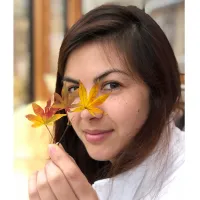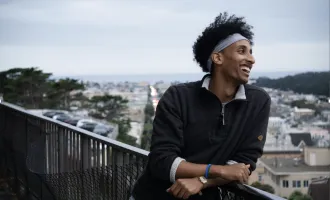
Farewell Til Fall
As we end the 66th year of Synapse’s publication, I encourage you to stop whatever you are doing and just take a moment. Look around you and remember who you are, because you are not simply a brain on a stick.
Entering the third year of this pandemic, the US grinds past the cruel, glittering number of one million recorded dead from the COVID-19 virus. On the other hand, we have seen the return of conferences and summer courses, one of which I am writing from right now, and the broadening of availability of rapid testing as well as more effective treatments.
Before I recount the work of the incredible Synapse team this past year, I want to remind you that the 2022 Annual Synapse Storytelling Contest is open for submissions. Enter here!
The contest closes on July 1, and we welcome entries in the categories of nonfiction, fiction, poetry, and photography. Even if you can’t become a regular contributor to Synapse, this is your chance to put fingertips to keyboard and write your heart out.
The total prize pool is $2,000, and we accept unlimited entries in each category. Even if you don’t win one of the top prizes, honorable mentions will receive $25 for each piece published over the course of the year.
Now, back to the highlights of this year at Synapse.
In the past few months at UCSF, we’ve seen efforts to support scholars fleeing from Ukraine and Afganistan, and more recently a protest at Mission Bay campus to support the right to abortion. Students at UCSF wrote about the interactions between their cultural heritage and their work in the biomedical field, tracing their roots back to Haiti and Brazil.
In the fall semester, Synapse published articles about the fight for unionization for student researchers and the dispute over whether a graduate student who performs research is really a Graduate Student Researcher. These unionization efforts led to a breakthrough early in December and have since aligned efforts to provide students with affordable campus housing.
Synapse satire writers interviewed their cats, who spoke up about having their research contributions recognized, and initiated a preliminary study into the use of lab coats as a source of novel compounds.
This spring, the Annual Science Writer Coffee Chat featured award-winning science journalist and author Nicholas St. Fleur of STAT News, which you can catch on Synapse’s YouTube channel. The UCSF Science Policy Group, in a joint venture with their sister organization at UC Berkeley, hosted the largest student-led science policy symposium in the country.
Chronicling this year would be incomplete without a reflection on public health policy and vaccines. Several articles interviewed UCSF physicians about their ongoing views on masking and marked the rise of recommendations in booster vaccination. Throughout the year, Synapse published commentary on masking during rideshare and remote work policies at UCSF. A new student group emerged on campus based entirely on fostering innovation and communication in the COVID-19 field.
If you didn’t already know, UCSF healthcare played a historic role in 1981 during the beginning of another pandemic, which you can read about in the limited series which highlights the early identification of certain AIDS symptoms at UCSF and the importance of the UCSF Oral Medicine Clinic then and now.
Finally, I welcome you as always to get involved in Synapse. Join one of our meetings held every two weeks, where we pitch story ideas and help develop stories. We are always looking for UCSF trainees who can contribute as writers, podcasters, and photographers. Each published article earns you a $25 gift card and the chance to broadcast your voice.
To get involved, just send us an email at synapse@ucsf.edu.
Hope to see you in the fall!



